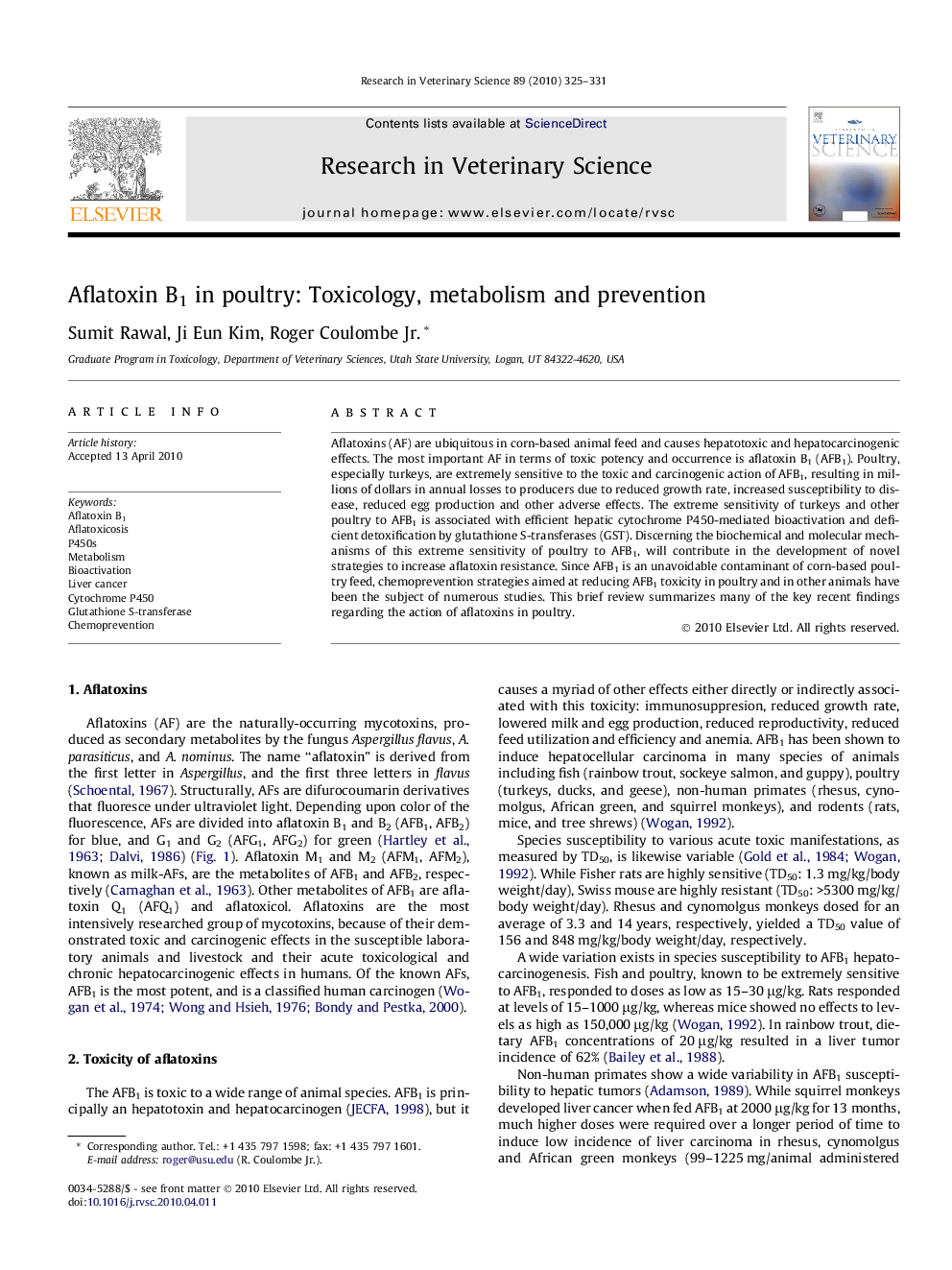| Article ID | Journal | Published Year | Pages | File Type |
|---|---|---|---|---|
| 2456013 | Research in Veterinary Science | 2010 | 7 Pages |
Aflatoxins (AF) are ubiquitous in corn-based animal feed and causes hepatotoxic and hepatocarcinogenic effects. The most important AF in terms of toxic potency and occurrence is aflatoxin B1 (AFB1). Poultry, especially turkeys, are extremely sensitive to the toxic and carcinogenic action of AFB1, resulting in millions of dollars in annual losses to producers due to reduced growth rate, increased susceptibility to disease, reduced egg production and other adverse effects. The extreme sensitivity of turkeys and other poultry to AFB1 is associated with efficient hepatic cytochrome P450-mediated bioactivation and deficient detoxification by glutathione S-transferases (GST). Discerning the biochemical and molecular mechanisms of this extreme sensitivity of poultry to AFB1, will contribute in the development of novel strategies to increase aflatoxin resistance. Since AFB1 is an unavoidable contaminant of corn-based poultry feed, chemoprevention strategies aimed at reducing AFB1 toxicity in poultry and in other animals have been the subject of numerous studies. This brief review summarizes many of the key recent findings regarding the action of aflatoxins in poultry.
